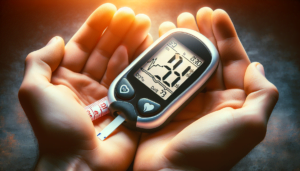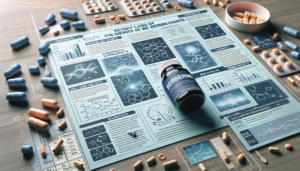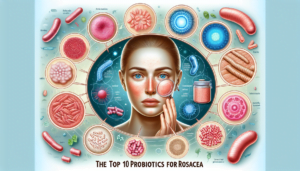Have you ever wondered about the symptoms of HSV-1? If so, you’re in the right place! In this article, we will explore the various signs that may indicate the presence of HSV-1 in your body. From the classic cold sores to less common manifestations, understanding these symptoms can help you stay informed and seek appropriate medical care if needed. So, let’s jump right in and discover the world of HSV-1 symptoms together!


Primary Infection
When you are first infected with the herpes simplex virus type 1 (HSV-1), you may experience what is known as a primary infection. This occurs when the virus enters your body for the first time. It commonly manifests in two ways: through oral symptoms and through genital symptoms.
Oral Symptoms
The primary infection of HSV-1 often presents itself with oral symptoms. You may notice cold sores or fever blisters around your mouth and lips. These blisters are usually small, fluid-filled, and can be quite painful. In some cases, you may also experience a sore throat, swollen lymph nodes in the neck, and general feelings of fatigue or malaise. These symptoms typically occur within two to 20 days after infection and may last up to two weeks.
Genital Symptoms
While HSV-1 is traditionally associated with oral herpes, it can also cause genital symptoms during a primary infection. If you engage in oral sex with an infected individual, you may develop genital herpes caused by the HSV-1 virus. The symptoms include painful blisters or sores in the genital area, similar in appearance to oral cold sores. Additionally, you may experience itching, burning, and discomfort in the affected area. These symptoms typically appear within two to 14 days after exposure and can last for several weeks.
Recurrent Infection
After the initial primary infection, the herpes simplex virus can lie dormant in your body and periodically reactivate, leading to recurrent infections. These subsequent infections can also present with oral symptoms or genital symptoms.
Oral Symptoms
During recurrent oral herpes outbreaks, you may notice cold sores or fever blisters appearing on or around your lips. These recurrent outbreaks are generally less severe and shorter in duration than the primary infection. The cold sores may still cause discomfort and pain, but they tend to heal within a week.
Genital Symptoms
Recurrent genital herpes outbreaks caused by HSV-1 can produce similar symptoms to the primary infection. You may experience painful blisters or sores in the genital region, accompanied by itching and a burning sensation. These outbreaks may occur less frequently over time, and the symptoms usually resolve within a couple of weeks.
Asymptomatic Shedding
It is important to note that even when you do not have visible symptoms of herpes, the virus can still be shedding from your body. This is known as asymptomatic shedding. During this period, you can transmit the virus to others through close personal contact, such as kissing or sexual activity. It is estimated that around 70% of herpes transmissions occur during asymptomatic shedding. Therefore, it is crucial to practice safe sex and take precautions to reduce the risk of transmitting the virus, even when you are not experiencing symptoms.
Prodrome Stage
Before an outbreak occurs, many people experience a prodrome stage, which is an early warning sign that a herpes outbreak is imminent. This stage often manifests with subtle symptoms that indicate an impending outbreak.
Oral Symptoms
During the prodrome stage of oral herpes outbreaks, you may notice tingling or burning sensations on or around your lips. Some individuals also report itching or a feeling of tightness in the affected area. These symptoms can occur hours or even days before the appearance of cold sores.
Genital Symptoms
For individuals with recurrent genital herpes caused by HSV-1, the prodrome stage may include symptoms such as tingling, itching, or a sensation of discomfort in the genital region. These early warning signs can help you anticipate and take appropriate measures to manage an impending outbreak.
Transmission
Herpes simplex virus type 1 can be transmitted through various means, including direct contact with infected lesions or the surrounding skin. Transmission commonly occurs through oral-to-oral contact, such as kissing or sharing utensils with someone who has an active cold sore. It is also possible to contract HSV-1 through oral-genital contact, leading to genital herpes. Additionally, the virus can be spread through sexual intercourse, especially if there is oral-genital contact involved.
Complications
While herpes simplex virus type 1 infections are generally not life-threatening, they can sometimes lead to complications, particularly in individuals with weakened immune systems. Here are some of the possible complications associated with HSV-1 infection.

Get 51% Discount If You Order Now!
Encephalitis
Encephalitis is a rare but serious complication of HSV-1 infection. It involves the inflammation of the brain and can cause symptoms such as severe headache, fever, confusion, seizures, and neurological deficits. Prompt medical attention and antiviral medications are crucial in managing this potentially life-threatening condition.
Eye Infections
HSV-1 can also lead to eye infections, known as ocular herpes. This condition can cause significant discomfort, redness, pain, and in severe cases, vision loss. It is essential to seek medical attention if you experience any symptoms affecting your eyes after a herpes infection.
Herpetic Whitlow
Herpetic whitlow is a herpes infection that affects the fingers or hands. It commonly occurs when the virus enters small breaks in the skin, such as cracks or cuts. Symptoms may include redness, swelling, fluid-filled blisters, and pain in the affected area. Proper hand hygiene and avoiding direct contact with herpes lesions can help prevent this complication.
Herpetic Hepatitis
Although rare, herpes simplex virus type 1 can potentially cause hepatitis, which is inflammation of the liver. This condition may result in symptoms such as abdominal pain, jaundice (yellowing of the skin and eyes), fatigue, and nausea. Seeking medical attention is crucial if you suspect you may have herpetic hepatitis.
Diagnosis
If you suspect you have an HSV-1 infection, several diagnostic methods can be utilized to confirm the presence of the virus. These methods include:
Physical Examination
A healthcare professional may perform a physical examination to assess the appearance and location of the lesions. This examination can help determine if the symptoms are consistent with a herpes infection.
Viral Cultures
A viral culture involves taking a sample from an active herpes sore and testing it in a laboratory. The sample is analyzed for the presence of the herpes simplex virus. This method can provide a definitive diagnosis and is most effective when the sample is collected within the first 48 to 72 hours of symptom onset.
Polymerase Chain Reaction (PCR) Test
PCR testing is a highly sensitive and specific method used to detect the genetic material of the herpes simplex virus. A sample is typically collected from a sore or blister and sent to a laboratory for analysis. PCR testing can identify the virus even if there are no visible symptoms present.
Antibody Blood Test
An antibody blood test, also known as a serologic test, detects the presence of antibodies against the herpes simplex virus. It can determine if you have been infected with HSV-1 in the past, even if you are not currently experiencing symptoms. This type of test is helpful in assessing your overall infection status.
Treatment
While there is no cure for herpes simplex virus type 1, various treatment options can help manage the symptoms and reduce the frequency and severity of outbreaks.
Antiviral Medications
Antiviral medications can be prescribed to help control herpes outbreaks and reduce the duration and intensity of symptoms. These medications work by inhibiting the replication of the virus. They can be taken orally or applied topically in the form of creams or ointments.
Pain Relief
Over-the-counter pain relievers, such as acetaminophen or ibuprofen, can help alleviate the discomfort associated with herpes outbreaks. Applying cool compresses or creams containing numbing agents may also provide temporary relief.
Home Remedies
Several home remedies can help soothe symptoms and promote healing during herpes outbreaks. These include keeping the affected areas clean and dry, avoiding tight or irritating clothing, applying natural remedies such as aloe vera or lemon balm, and maintaining a healthy lifestyle with proper nutrition and stress management.

Prevention
Preventing the transmission of herpes simplex virus type 1 is crucial to protect yourself and others from infection. Here are some preventive measures you can take:
Safe Sex Practices
Practicing safe sex by using latex condoms or dental dams during sexual activity can significantly reduce the risk of transmitting HSV-1. However, it is important to note that condoms may not provide complete protection, as the virus can be present on areas not covered by the barrier.
Avoiding Direct Contact
Avoiding direct contact with herpes lesions or their surrounding areas is crucial in preventing the spread of the virus. Refrain from kissing or sharing utensils, cups, or other personal objects with someone who has an active cold sore. It is also important to avoid oral-genital contact during an outbreak to reduce the risk of transmitting genital herpes.
Living with HSV-1
Receiving a diagnosis of HSV-1 can be emotionally challenging, but there are coping strategies and support available to help you navigate living with the virus.
Coping Strategies
It is important to educate yourself about the virus, its transmission, and available treatment options. Managing stress levels, practicing self-care, and maintaining open and honest communication with your partners can also contribute to your overall well-being.
Support Groups
Joining support groups or seeking therapy can provide an invaluable source of emotional support and guidance. Connecting with others who have similar experiences can help reduce feelings of isolation and offer practical advice for living with HSV-1.
In conclusion, herpes simplex virus type 1 can cause a range of symptoms, from cold sores and fever blisters to genital herpes. Understanding the various stages, complications, diagnostic methods, and treatment options can help you effectively manage and prevent the spread of the virus. Remember, you are not alone, and there are resources available to support you in living a fulfilling life with HSV-1.



